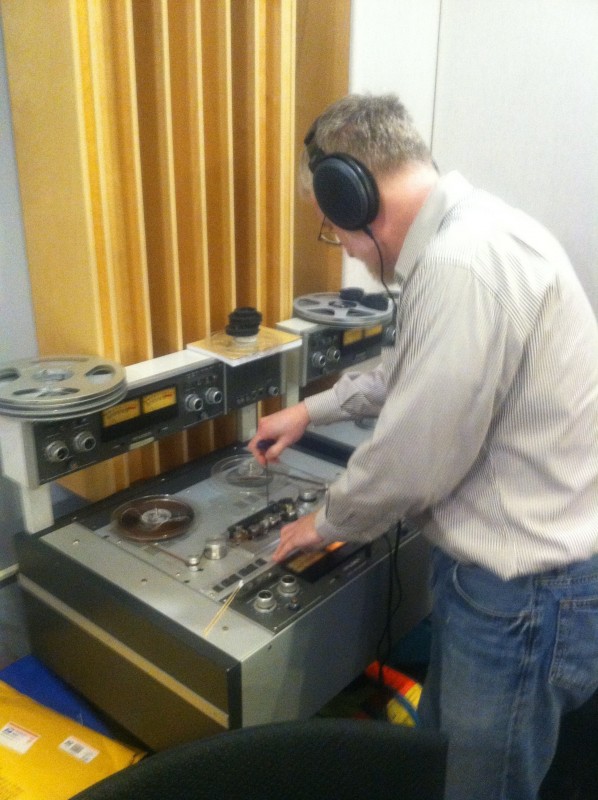Little else stirred the American soul in the 20th century like four short words cried out across the National Mall in Washington on August 28, 1963 — “I have a dream.”
Before Dr. Martin Luther King’s words echoed throughout Lincoln Memorial, he raised goose bumps inside a segregated school gym in North Carolina.
And just like in Washington, the refrain “Free at last! Free at last! Thank God Almighty, we are free at last!” prompted roars and cheers from the audience of some 1,800 in Rocky Mount.
Someone rolled audio tape during King’s speech that day — November 27, 1962, at Booker T. Washington High.
That recording has been restored, digitized and was presented to the public this week by the English department of North Carolina State University.
That speech was the birth of “I have a dream,” said Jason Miller, who studies King’s speeches at the university. “The first time he ever used the phrase ‘I have a dream’ was right here in North Carolina,” he said.
Hearing Dr. King live
Herbert Tillman remembers that day well.
King was in Rocky Mount at the invitation of the local NAACP chapter.
When Tillman walked into the gym at Booker T. Washington, he saw wall-to-wall people with anticipation in their faces.
“All of a sudden, Martin Luther King comes on stage. And when he comes on stage, everybody, and I mean everybody, got to their feet and got to hollering and jubilation with excitement,” he said.
King’s way with words fascinated Tolokum Omokunde, who was also there.
“I’d never heard anybody put all those kind of words together and let them flow like liquid. And he was crystal clear, and he was saying that we can walk together,” he recalled.
King encouraged the crowd to dream past the reality of their oppression, segregation and belittlement.
After King left, the reel-to-reel tape was stowed away, until recently, when someone stumbled upon it and handed it off to a local historian who handed it to Miller.
Miller confirmed its authenticity, then sent it off to be digitized in Philadelphia by audio master George Blood, author of the Library of Congress’ guide on audio restoration. He restored the recording as closely as possible to the original speech.
“Absolutely no overdubs, edits, or changes have been made to this recording in any way,” the university said. “Now for the first time, this historic speech can be heard.”
‘He practiced on us’
King’s speech at the North Carolina school — at 55 minutes — was longer than the Lincoln Memorial address. But the refrain was very similar — in large chunks verbatim.
Parts of the text had been moved around; local details that applied to Rocky Mount removed.
But when Omokunde saw the Lincoln Memorial address on TV nine months later, it rang very familiar to him.
“I do think he practiced on us for his ‘I have a dream’ speech,” he said.
When he followed Dr. King on the screen, Omokunde began to move his lips in sync to the words of the refrain.
“I have a dream that one day this nation will rise up and live out the true meaning of its creed: We hold these truths to be self-evident, that all men are created equal.”
